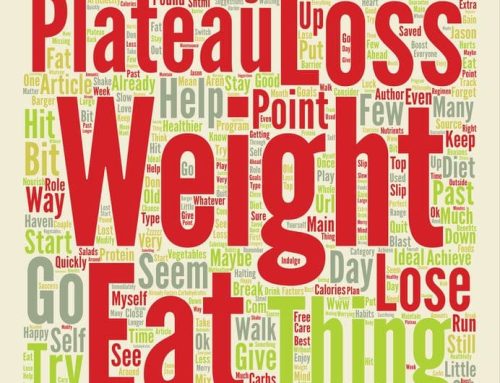The health benefits of 5% weight loss are substantial. If you’re struggling with obesity, it might feel sometimes like you have to radically overhaul your entire body and lose all your excess weight to get healthier, but that’s not the case at all, according to a new study.
Researchers in the US say that losing just 5 percent of your body weight is all it takes to see major health benefits in obese people. Hitting that smaller and more achievable-seeming target provides significant improvements to metabolic health and opens up the possibility of continued weight loss to boot.
“Our findings demonstrate that you get the biggest bang for your buck with 5 percent weight loss,” said Samuel Klein, director of Washington University’s Centre for Human Nutrition. “The current guidelines for treating obesity recommend a 5 to 10 percent weight loss, but losing 5 percent of your body weight is much easier than losing 10 percent. So, it may make sense for patients to aim at the easier target.”
Study on Health Benefits of 5% Weight Loss
To measure the health benefits of 5% weight loss, the researchers randomly assigned 40 obese individuals – none of whom had diabetes – different weight loss goals. Half the group were instructed to maintain their body weight, while the other half were asked to lose 5, 10, or 15 percent of it.
Of the 20 participants tasked with losing weight, 19 succeeded in losing 5 percent of their body weight. At this point, the researchers noted that the functioning of the participants’ insulin-secreting beta cells had improved, as had insulin sensitivity in fat, liver, and skeletal muscle tissue – lowering their risk for diabetes and cardiovascular disease. Total body fat had decreased, and fat in the liver was reduced also.
Nine of those 19 participants continued to diet after dropping 5 percent of their body weight, with all of these individuals eventually succeeding in passing 10 percent and then reaching 15 percent body weight loss.
While this sub-group saw increased health benefits for their additional effort – including improvements in beta cell function and insulin sensitivity in muscle tissue – the gains were relatively minor compared to the 5 percent markers.
“Continued weight loss is good, but not all organ systems respond the same way,” said Klein. “Muscle tissue responds much more to continued weight loss, but liver and adipose tissue have pretty much achieved their maximum benefit at 5 percent weight loss.”
The researchers intend to next study how people with diabetes respond to progressive weight loss reductions, in addition to measuring the impact on obesity-related complications, such as arthritis and lung disease.
In the meantime, the findings, which are published in Cell Metabolism, should offer hope to any larger folk who wish to improve their health but feel daunted by the ambitious challenge of losing high proportions of their body weight in one go.
“If you weigh 200 pounds, you will be doing yourself a favor if you can lose 10 pounds and keep it off,” said Klein. “You don’t have to lose 50 pounds to get important health benefits.”
Click here to read more about the health benefits of 5% weight loss.







